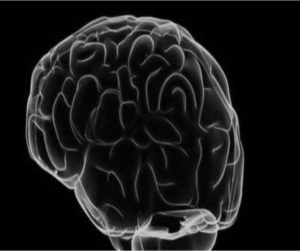[vc_row][vc_column][vc_cta h2="Help Is Only A Phone Call Away" txt_align="center" shape="round" style="flat" color="vista-blue" el_width="sm" use_custom_fonts_h2="true" use_custom_fonts_h4="true"]Call Now 855-227-9535[/vc_cta] Methadone is a drug that, when abused, causes side effects like nausea, constipation, decreased respiratory rate, decreased heart rate, diarrhea, vomiting, and extreme lethargy. In some cases, people get addicted to this drug—which is ironic because it’s not supposed to make people feel euphoric. But some people take large doses of methadone, and it’s enough to create adverse health effects. But in this article, we will be focusing on what it does to a person’s brain. Mental health is just as important as our physical health, and addictive drugs happen to affect both. So let’s take a closer look at the effects of methadone on the brain.
What is Methadone?
 But first, let’s have a brief overview of methadone. This substance is an opiate medication that is commonly used for addiction treatment. It is used as a part of opioid replacement therapy, particularly those that focus on the use of methadone. Methadone clinics, for example, unlock the drug’s true potential by helping people get over their opioid dependence. Methadone is one of the derivatives of the poppy plant, which means it has the same pain-relieving qualities that other narcotics have. The DEA classifies methadone as a Schedule II controlled substance, which means it can be useful for treating a number of medical conditions, but it still has the potential to be abused. As helpful as this is, it can still be taken recreationally, which means it is addictive in its own right.
But first, let’s have a brief overview of methadone. This substance is an opiate medication that is commonly used for addiction treatment. It is used as a part of opioid replacement therapy, particularly those that focus on the use of methadone. Methadone clinics, for example, unlock the drug’s true potential by helping people get over their opioid dependence. Methadone is one of the derivatives of the poppy plant, which means it has the same pain-relieving qualities that other narcotics have. The DEA classifies methadone as a Schedule II controlled substance, which means it can be useful for treating a number of medical conditions, but it still has the potential to be abused. As helpful as this is, it can still be taken recreationally, which means it is addictive in its own right.
What Does it Do to Your Brain?
Methadone works by attaching to the opioid receptors in the brain, blocking euphoric sensations from other drugs. Methadone is generally safe because it barely causes any high. Only those who are determined to abuse this drug will get addicted to it because it takes large doses to even get high from methadone. Methadone also remains in the system longer than other opioid drugs like heroin, meaning it can block opioid cravings. Abusing your prescription can still cause mental health problems. The person will have issues with judgment, preventing them from making good decisions. Methadone users are also more likely to engage in risky behaviors, which can get them in trouble with other people, or even with the law. If someone takes large doses of methadone, they can feel sedated, euphoric, drowsy, and relaxed. This is the same thing that happens to narcotic users because methadone itself is classified as a narcotic, albeit a safer one. [maxbutton id="2" ] The person may start exhibiting changes in behavior. For example, they may pay less attention to their health, fitness, or personal hygiene. Methadone abuse can also lead to problems with learning and memory. The brain will be more focused on the reward center, and it will eventually develop into physical dependence. The person will feel like they can’t go a day without taking methadone. They eventually become addicted, craving the drug even when they are already suffering from its physical effects. If you know someone who is struggling with methadone addiction, help them get sober again. Look for an addiction treatment facility near you to find out what programs they offer for those who are abusing methadone.
What Does Methadone Do to Your Brain? See more on: RehabNear.me
from
https://www.rehabnear.me/methadone-effects-to-the-brain/

No comments:
Post a Comment